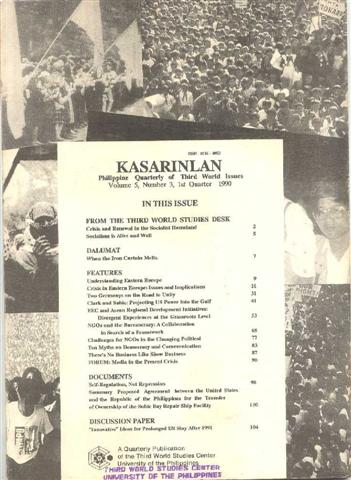Crisis in Eastern Europe: Issues and Implications
Abstract
A mix of wary observers, each with vested interests, watched over the turmoil in Eastern Europe. The transition to socialism without a blueprint has become a product of concrete conditions that shaped various interpretations and applications of the Marxist theory. There became a need to dichotomize the theory from the practice of socialism.Generalization of the Eastern European countries into one region entailed a need to look into them at the micro-level to understand the specific factors and contradictions that led to the dissent and mass movement that overthrew their regimes. Searching for the common denominator, different factors were considered in the democratic movements. Is it a political revolution against a “Stalinist bureaucracy”? Will there be a possible transition from a hegemonic state to a pluralist polity in Eastern Europe, not necessarily a retreat to capitalism? Is it a generational social movement for civil rights? Is it a class struggle?
Given the mix of competing political forces in Eastern Europe and the democratic movements’ tendency to agree to a compromise, it proved difficult to determine the political and economic direction of the changes that will take place in these countries.
The following conclusions may lead to further discussion: first, the workers might grieve the fact that socialism gave them a “dictatorship of the proletariat” in name only, but they are not likely to agree to a pluralist framework that will negate this principle. Second, the West may use this period of instability to make or break its ties with Eastern European countries. Third, correct institution of centralization would have avoided the political alienation of the workers. And finally, socialist pluralism may still flourish even with the existence of a vanguard party provided that the workers remain in the former. In sum, the complex uncertainties of these events might prove useful to chart a new course for socialism.
Published
2008-06-26
Issue
Section
Features
Keywords
eastern Europe; socialism; democratic movements; proletariat; socialist pluralism; Vanguard party
By submitting a manuscript, the authors agree that the exclusive rights to reproduce and distribute the article have been given to the Third World Studies Center.



